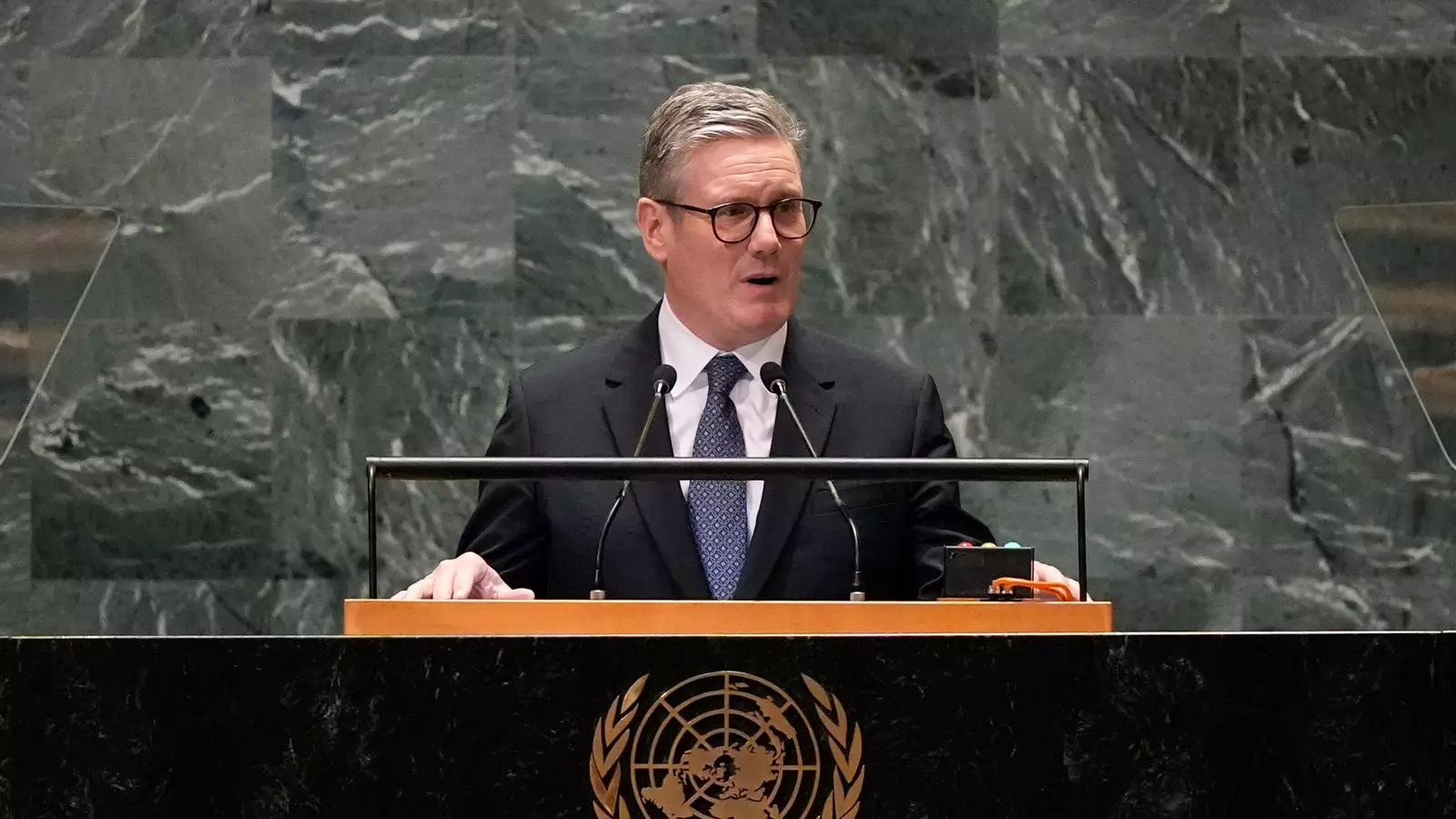In a critical moment at the United Nations General Assembly, UK Prime Minister Sir Keir Starmer delivered a compelling message urging both Israel and Hezbollah to agree to a ceasefire. Emphasizing that “escalation serves no one,” his remarks reflect a growing concern over the implications of ongoing violence in the region. The reality of the situation is underscored by Israeli Prime Minister Benjamin Netanyahu’s declaration that his military operations would continue “at full force,” reiterating the complex and volatile nature of the conflict. Starmer’s plea for peace is not just a call to action; it’s a recognition of interdependence and the urgent need for reconsideration of aggressive postures by both parties.
Starmer’s address highlights the disheartening reality that conflicts often perpetuate cycles of violence. With violence escalating, the UK Prime Minister’s insistence on a diplomatic solution serves as a reminder of the international community’s responsibility to facilitate dialogue instead of encouraging further animosity. He rightly pointed out that a ceasefire could provide the necessary breathing room for negotiations, suggesting that only through peaceful means can we hope to find long-lasting resolutions.
In his discourse, Starmer stressed the imperative for the United Nations to “work together for peace, progress, and equality.” This assertion resonates strongly amid criticisms that the UN system is often stagnant in the face of global crises. Sir Keir’s call for unity reflects a broader dissatisfaction with the effectiveness of international organizations in addressing pressing geopolitical issues.
His comments bring to light the necessity for the UN to adapt and evolve its tactics in conflict resolution. From his perspective, it is crucial that nations collaborate actively to prevent any potential escalation into a broader conflict, particularly in the fragile context of the Middle East. This sentiment underscores a reduced tolerance for diplomatic stagnation, urging the UN to fulfill its foundational purpose – promoting peace and security worldwide.
Another significant aspect of Starmer’s address was his pointed critique of Russia concerning its aggression in Ukraine. By confronting one of the permanent members of the Security Council, Starmer sets a precedent for accountability within the very institutions designed to uphold international law. His statement that the invasion constitutes “the greatest violation of the charter in a generation” is emblematic of a call for decisive action against nations that challenge global peace.
This acknowledgment of Russia’s actions also intertwines with the broader narrative of unsuccessful conflict resolution. Starmer’s emphasis on infusing “new energy and creativity” into global conflict prevention is an essential part of the discourse. It suggests that past approaches may no longer suffice in today’s rapidly evolving geopolitical landscape, warranting innovative frameworks for addressing contemporary issues.
Domestic Policies and Global Responsibility
While international issues dominated Starmer’s address, he also shared plans for his domestic agenda, particularly focusing on climate change. Notably, his pledge to allocate “billions” from pension and insurance funds towards combating climate change evokes optimism about the UK’s proactive stance in confronting global environmental crises. By positioning the investment as part of a concerted effort to blend financial innovation with ecological sustainability, Starmer’s plans reinforce the interconnectedness of local and global challenges.
This approach to domestic policy complements his international advocacy, suggesting a vision where the UK not only addresses its local issues but contributes meaningfully to global problems. It showcases how the principles of sustainability, accountability, and collaboration can drive national policies while simultaneously benefiting global objectives.
As Sir Keir Starmer prepares for further diplomatic encounters, including a meeting with Donald Trump, the next steps in fostering international dialogue and cooperation remain pivotal. While the meeting with Trump may not include discussions with the Democratic Party’s Kamala Harris, it opens avenues for engagement with diverse political viewpoints.
The confluence of domestic advocacy, international peacekeeping, and climate action presents a complex but necessary narrative for global leaders. As Starmer implores nations to reflect on their commitments and responsibilities, his stance echoes the belief that peace can only thrive through collaboration, innovation, and an unwavering commitment to humanity’s shared future.

Leave a Reply